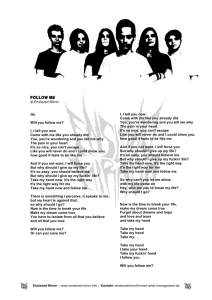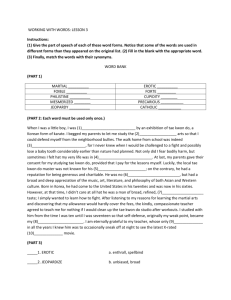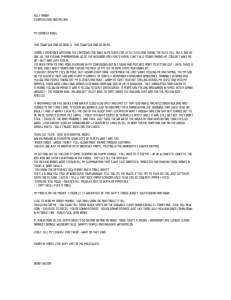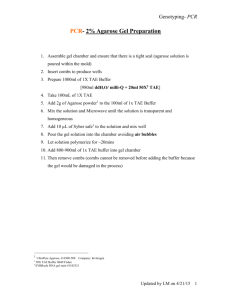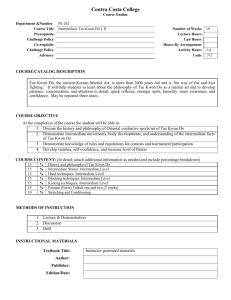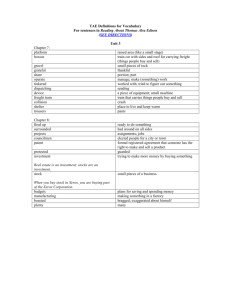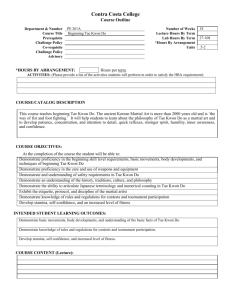Beginnings of novels..
advertisement
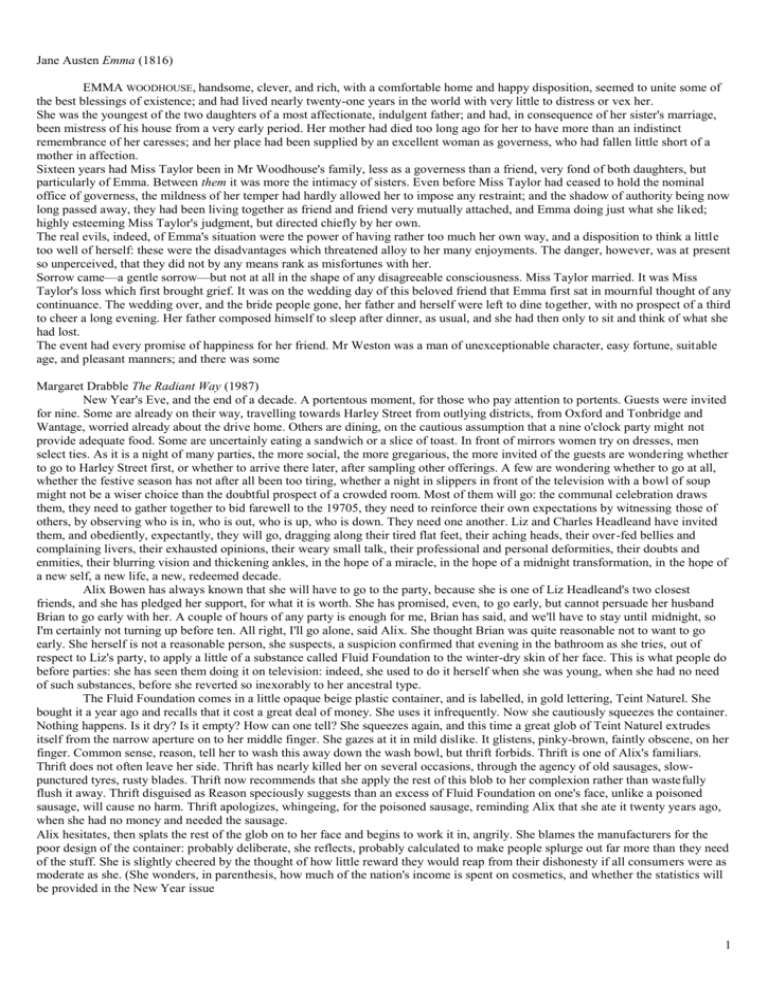
Jane Austen Emma (1816) EMMA WOODHOUSE, handsome, clever, and rich, with a comfortable home and happy disposition, seemed to unite some of the best blessings of existence; and had lived nearly twenty-one years in the world with very little to distress or vex her. She was the youngest of the two daughters of a most affectionate, indulgent father; and had, in consequence of her sister's marriage, been mistress of his house from a very early period. Her mother had died too long ago for her to have more than an indistinct remembrance of her caresses; and her place had been supplied by an excellent woman as governess, who had fallen little short of a mother in affection. Sixteen years had Miss Taylor been in Mr Woodhouse's family, less as a governess than a friend, very fond of both daughters, but particularly of Emma. Between them it was more the intimacy of sisters. Even before Miss Taylor had ceased to hold the nominal office of governess, the mildness of her temper had hardly allowed her to impose any restraint; and the shadow of authority being now long passed away, they had been living together as friend and friend very mutually attached, and Emma doing just what she liked; highly esteeming Miss Taylor's judgment, but directed chiefly by her own. The real evils, indeed, of Emma's situation were the power of having rather too much her own way, and a disposition to think a little too well of herself: these were the disadvantages which threatened alloy to her many enjoyments. The danger, however, was at present so unperceived, that they did not by any means rank as misfortunes with her. Sorrow came—a gentle sorrow—but not at all in the shape of any disagreeable consciousness. Miss Taylor married. It was Miss Taylor's loss which first brought grief. It was on the wedding day of this beloved friend that Emma first sat in mournful thought of any continuance. The wedding over, and the bride people gone, her father and herself were left to dine together, with no prospect of a third to cheer a long evening. Her father composed himself to sleep after dinner, as usual, and she had then only to sit and think of what she had lost. The event had every promise of happiness for her friend. Mr Weston was a man of unexceptionable character, easy fortune, suitable age, and pleasant manners; and there was some Margaret Drabble The Radiant Way (1987) New Year's Eve, and the end of a decade. A portentous moment, for those who pay attention to portents. Guests were invited for nine. Some are already on their way, travelling towards Harley Street from outlying districts, from Oxford and Tonbridge and Wantage, worried already about the drive home. Others are dining, on the cautious assumption that a nine o'clock party might not provide adequate food. Some are uncertainly eating a sandwich or a slice of toast. In front of mirrors women try on dresses, men select ties. As it is a night of many parties, the more social, the more gregarious, the more invited of the guests are wondering whether to go to Harley Street first, or whether to arrive there later, after sampling other offerings. A few are wondering whether to go at all, whether the festive season has not after all been too tiring, whether a night in slippers in front of the television with a bowl of soup might not be a wiser choice than the doubtful prospect of a crowded room. Most of them will go: the communal celebration draws them, they need to gather together to bid farewell to the 19705, they need to reinforce their own expectations by witnessing those of others, by observing who is in, who is out, who is up, who is down. They need one another. Liz and Charles Headleand have invited them, and obediently, expectantly, they will go, dragging along their tired flat feet, their aching heads, their over-fed bellies and complaining livers, their exhausted opinions, their weary small talk, their professional and personal deformities, their doubts and enmities, their blurring vision and thickening ankles, in the hope of a miracle, in the hope of a midnight transformation, in the hope of a new self, a new life, a new, redeemed decade. Alix Bowen has always known that she will have to go to the party, because she is one of Liz Headleand's two closest friends, and she has pledged her support, for what it is worth. She has promised, even, to go early, but cannot persuade her husband Brian to go early with her. A couple of hours of any party is enough for me, Brian has said, and we'll have to stay until midnight, so I'm certainly not turning up before ten. All right, I'll go alone, said Alix. She thought Brian was quite reasonable not to want to go early. She herself is not a reasonable person, she suspects, a suspicion confirmed that evening in the bathroom as she tries, out of respect to Liz's party, to apply a little of a substance called Fluid Foundation to the winter-dry skin of her face. This is what people do before parties: she has seen them doing it on television: indeed, she used to do it herself when she was young, when she had no need of such substances, before she reverted so inexorably to her ancestral type. The Fluid Foundation comes in a little opaque beige plastic container, and is labelled, in gold lettering, Teint Naturel. She bought it a year ago and recalls that it cost a great deal of money. She uses it infrequently. Now she cautiously squeezes the container. Nothing happens. Is it dry? Is it empty? How can one tell? She squeezes again, and this time a great glob of Teint Naturel extrudes itself from the narrow aperture on to her middle finger. She gazes at it in mild dislike. It glistens, pinky-brown, faintly obscene, on her finger. Common sense, reason, tell her to wash this away down the wash bowl, but thrift forbids. Thrift is one of Alix's familiars. Thrift does not often leave her side. Thrift has nearly killed her on several occasions, through the agency of old sausages, slowpunctured tyres, rusty blades. Thrift now recommends that she apply the rest of this blob to her complexion rather than wastefully flush it away. Thrift disguised as Reason speciously suggests than an excess of Fluid Foundation on one's face, unlike a poisoned sausage, will cause no harm. Thrift apologizes, whingeing, for the poisoned sausage, reminding Alix that she ate it twenty years ago, when she had no money and needed the sausage. Alix hesitates, then splats the rest of the glob on to her face and begins to work it in, angrily. She blames the manufacturers for the poor design of the container: probably deliberate, she reflects, probably calculated to make people splurge out far more than they need of the stuff. She is slightly cheered by the thought of how little reward they would reap from their dishonesty if all consumers were as moderate as she. (She wonders, in parenthesis, how much of the nation's income is spent on cosmetics, and whether the statistics will be provided in the New Year issue 1 Margaret Atwood Oryx and Crake (2003) Bonfire Once upon a time, Snowman wasn't Snowman. Instead he was Jimmy. He'd been a good boy then. Jimmy's earliest complete memory was of a huge bonfire. He must have been five, maybe six. He was wearing red rubber boots with a smiling duck's face on each toe; he remembers that, because after seeing the bonfire he had to walk through a pan of disinfectant in those boots. They'd said the disinfectant was poisonous and he shouldn't splash, and then he was worried that the poison would get into the eyes of the ducks and hurt them. He'd been told the ducks were only like pictures, they weren't real and had no feelings, but he didn't quite believe it. So let's say five and a half, thinks Snowman. That's about right. The month could have been October, or else November; the leaves still turned colour then, and they were orange and red. It was muddy underfoot — he must have been standing in a field — and it was drizzling. The bonfire was an enormous pile of cows and sheep and pigs. Their legs stuck out stiff and straight; gasoline had been poured onto them; the flames shot up and out, yellow and white and red and orange, and a smell of charred flesh filled the air. It was like the barbecue in the backyard when his father cooked things but a lot stronger, and mixed in with it was a gas-station smell, and the odour of burning hair. Jimmy knew what burning hair smelled like because he'd cut off some of. his own hair with the manicure scissors and set fire to it with his mother's cigarette lighter. The hair had frizzled up, squiggling like a clutch of tiny black worms, so he'd cut off some more and done it again. By the time he was caught, his hair was ragged all along the front. When accused he'd said it was an experiment. His father had laughed then, but his mother hadn't. At least (his father said) Jimmy'd had the good sense to cut the hair off before torching it. His mother said it was lucky he hadn't burnt the house down. Then they'd had an argument about the cigarette lighter, which wouldn't have been there (said his father) if his mother didn't smoke. His mother said that all children were arsonists at heart, and if not for the lighter he'd have used matches. Once the fight got going Jimmy felt relieved, because he'd known then that he wouldn't be punished. All he had to do was say nothing and pretty soon they'd forget why they'd started arguing in the first place. But he also felt guilty, because look what he'd made them do. He knew it would end with a door being slammed. He scrunched down lower and lower in his chair with the words whizzing back and forth over his head, and finally there was the bang of the door — his mother this time — and the wind that came with it. There was always a wind when the door got slammed, a small puff — whuff! — right in his ears. "Never mind, old buddy," said his father. "Women always get hot under the collar. She'll cool down. Let's have some ice cream." So that's what they did, they had Raspberry Ripple in the cereal bowls with the blue and red birds on them that were handmade in Mexico so you shouldn't put them in the dishwasher, and Martin Amis: London Fields (1989) Chapter I: The Murderer KEITH TALENT WAS a bad guy. Keith Talent was a very bad guy. You might even say that he was the worst guy. But not the worst, not the very worst ever. There were worse guys. Where? There in the hot tight of CostCheck for example, with car keys, beige singlet, and a six-pack of Peculiar Brews, the scuffle at the door, the foul threat and the elbow in the black neck of the wailing lady, then the car with its rust and its waiting blonde, and off to do the next thing, whatever, whatever necessary. The mouths on these worst guys — the eyes on them. Within those, eyes a tiny unsmiling universe. No. Keith wasn't that bad. He had saving graces. He didn't hate people for ready-made reasons. He was at least multiracial in outlook - thoughtlessly, helplessly so. Intimate encounters with strange-hued women had sweetened him somewhat. His saving graces all had names. What with the Fetnabs and Fatimas he had known, the Nketchis and Iqbalas, the Michikos and Boguslawas, the Ramsarwatees and Rajashwaris - Keith was, in this sense, a man of the world. These were the chinks in his coal-black armour: God bless them all. Although he liked nearly everything else about himself, Keith hated his redeeming features. In his view they constituted his only major shortcoming - his one tragic flaw. When the moment arrived, in the office by the loading bay at the plant off the M4 near Bristol, with his great face crammed into the prickling nylon, and the proud woman shaking her trembling head at him, and Chick Purchase and Dean Pleat both screaming Do it. Do it (he still remembered their meshed mouths writhing), Keith had definitely failed to realize his full potential. He had proved incapable of dubbing the Asian woman to her knees, and of going on clubbing until the man in the uniform opened the safe. Why had he failed? Why, Keith, why? In truth he had felt far from well: half the night up some lane in a car full of the feet-heat of burping criminals; no breakfast, no bowel movement; and now, to top it all off, everywhere he looked he saw green grass, fresh trees, rolling hills. Chick Purchase, furthermore, had already crippled the second guard, and Dean Pleat soon vaulted back over the counter and self-righteously laid into the woman with his rifle butt. So Keith's qualms had changed nothing — except his career prospects in armed robbery. (It's tough at the top, and it's tough at the bottom, too; Keith's name was muck thereafter.) If he could have done it, he would have done it, joyfully. He just didn't have ... he just didn't have the talent. After that Keith turned his back on armed robbery once and for all. He took up racketeering. In London, broadly speaking, racketeering meant fighting about drugs; in the part of West London that Keith called home, racketeering meant fighting about drugs with black people — and black people are better at fighting than white people, because, among other reasons, they all do it (there aren't any civilians). Racketeering works through escalation, and escalation dominance: success goes to the men who can manage the exponential jump, to the men who can regularly astonish with their violence. It took Keith several crunchy beatings, and the first signs of a liking for hospital food, before he concluded that he wasn't cut out for racketeering. During one of his convalescences, when he spent a lot of time in the street cafes of Golborne Road, Keith grew preoccupied by a certain enigma. The enigma was this. How come you often saw black guys with white girls (always blondes, always, presumably for maximum contrast-gain), and never saw white guys with black girls? Did the black guys beat up the white guys who went out with black girls? No, or not much; you had to be 2 discreet, though, and in his experience lasting relationships were seldom formed. Then how was it done? It came to him in a flash of inspiration. The black guys beat up the black girls who went out with white guys! Of course. So much simpler. He pondered the wisdom of this and drew a lesson from it, a lesson which, in his heart, he had long understood. If you're going to be violent, stick to women. Stick to the weak. Ian McEwan Enduring Love (1997) One The beginning is simple to mark. We were in sunlight under a turkey oak, partly protected from a strong, gusty wind. I was kneeling on the grass with a corkscrew in my hand, and Clarissa was passing me the bottle - a 1987 Daumas Gassac. This was the moment, this was the pinprick on the time map: I was stretching out my hand, and as the cool neck and the black foil touched my palm, we heard a man's shout. We turned to look across the field and saw the danger. Next thing, I was running towards it. The transformation was absolute: I don't recall dropping the corkscrew, or getting to my feet, or making a decision, or hearing the caution Clarissa called after me. What idiocy, to be racing into this story and its labyrinths, sprinting away from our happiness among the fresh spring grasses by the oak. There was the shout again, and a child's cry, enfeebled by the wind that roared in the tall trees along the hedgerows. I ran faster. And there, suddenly, from different points around the field, four other men were converging on the scene, running like me. I see us from three hundred feet up, through the eyes of the buzzard we had watched earlier, soaring, circling and dipping in the tumult of currents: five men running silently towards the centre of a hundred-acre field. I approached from the south-east, with the wind at my back. About two hundred yards to my left two men ran side by side. They were farm labourers who had been repairing the fence along the field's southern edge where it skirts the road. The same distance beyond them was the motorist, John Logan, whose car was banked on the grass verge with its door, or doors, wide open. Knowing what I know now, it's odd to evoke the figure of Jed Parry directly ahead of me, emerging from a line of beeches on the far side of the field a quarter of a mile away, running into the wind. To the buzzard Parry and I were tiny forms, our white shirts brilliant against the green, rushing towards each other like lovers, innocent of the grief this entanglement would bring. The encounter that would unhinge us was minutes away, its enormity disguised from us not only by the barrier of time but by the colossus in the centre of the field that drew us in with the power of a terrible ratio that set fabulous magnitude against the puny human distress at its base. What was Clarissa doing? She said she walked quickly towards the centre of the field. I don't know how she resisted the urge to run. By the time it happened - the event I am about to describe, the fall - she had almost caught us up and was well placed as an observer, unencumbered by participation, by the ropes and the shouting, and by our fatal lack of co-operation. What I describe is shaped by what Clarissa saw too, by what we told each other in the time of obsessive re-examination that followed: the aftermath, an appropriate term for what happened in a field waiting for its early summer mowing. The aftermath, the second crop, the growth promoted by that first cut in May. I'm holding back, delaying the information. I'm lingering in the prior moment because it was a time when other outcomes were still possible; the convergence of six figures in a flat green space has a comforting geometry from the buzzard's perspective, the knowable, limited plane of the snooker table. The initial conditions, the force and the direction of the force, define all the consequent pathways, all the angles of collision and return, and the glow of the overhead light bathes the field, the baize and all its moving bodies, in reassuring clarity. I think that while we were still converging, before we made contact, we were in a state of mathematical grace. I linger on our dispositions, the relative distances and the compass point - because as far as these occurrences were concerned, this was the last time I understood anything clearly at all. What were we running towards? I don't think any of us would ever know fully. But superficially the answer was, a balloon. Not the nominal space that encloses a cartoon character's speech or thought, or, by analogy, the kind that's driven by mere hot air. It was an enormous balloon filled with helium, that elemental gas forged from hydrogen in the nuclear furnace of the stars, first step along the way in the generation of multiplicity and variety of matter in the universe, including our selves and all our thoughts. Vladimir Nabokov Lolitai (1959) Part One 1 LOLITA, light of my life, fire of my loins. My sin, my soul. Lo-lee-ta: the tip of the tongue taking a trip of three steps down the palate to tap, at three, on the teeth. Lo. Lee. Ta. She was Lo, plain Lo, in the morning, standing four feet ten in one sock. She was Lola in slacks. She was Dolly at school She was Dolores on the dotted line. But in my arms she was always Lolita. Did she have a precursor? She did, indeed she did. In point of fact, there might have been no Lolita at all had I not loved, one summer, a certain initial girl-child. In a princedom by the sea. Oh when? About as many years before Lolita was born as my age was that summer. You can always count on a murderer for a fancy prose style. Ladies and gentlemen of the jury, exhibit number one is what the seraphs, the misinformed, simple, noble-winged seraphs, envied. Look at this tangle of thorns. 2 I WAS born in 1910, in Paris. My father was a gentle, easygoing person, a salad of racial genes: a Swiss citizen, of mixed French and Austrian descent, with a dash of the Danube in his veins. I am going to pass around in a minute some lovely, glossy-blue picturepostcards. He owned a luxurious hotel on the Riviera. His father and two grandfathers had sold wine, jewels and silk, respectively. At thirty he married an English girl, daughter of Jerome Dunn, the alpinist, and grand-daughter of two Dorset parsons, experts in obscure subjects - palaeopedology and Aeolian harps, respectively. My very photogenic mother died in a freak accident (picnic, lightning) when I was three, and, save for a pocket of warmth in the darkest past, nothing of her subsists within the hollows and dells of memory, over which, if you can still stand my style (I am writing under observation), the sun of my infancy had set: surely, you all know those redolent remnants of day suspended, with 3 the midges, about some hedge in bloom or suddenly entered and traversed by the rambler, at the bottom of a hill, in the summer dusk; a furry warmth, golden midges. J.D. Salinger Catcher in the Rye (1951) Chapter1 IF you really want to hear about it, the first thing you'll probably want to know is where I was born, and what my lousy childhood was like, and how my parents were occupied and all before they had me, and all that David Copper-field kind of crap, but I don't feel like going into it. In the first place, that stuff bores me, and in the second place, my parents would have about two haemorrhages apiece if I told anything pretty personal about them. They're quite touchy about anything like that, especially my father. They're nice and all - I'm not saying that - but they're also touchy as hell. Besides, I'm not going to tell you my whole goddam autobiography or anything. I'll just tell you about this madman stuff that happened to me around last Christmas before I got pretty rundown and had to come out here and take it easy. I mean that's all I told D.B. about, and he's my brother and all. He's in Hollywood. That isn't too far from this crumby place, and he comes over and visits me practically every week-end. He's going to drive me home when I go home next month maybe. He just got a Jaguar. One of those little English jobs that can do around two hundred miles an hour. It cost him damn near four thousand bucks. He's got a lot of dough now. He didn't use to. He used to be just a regular writer, when he was home. He wrote this terrific book of short stories, The Secret Goldfish, in case you never heard of him. The best one in it was 'The Secret Goldfish'. It was about this little kid that wouldn't let anybody look at his goldfish because he'd bought it with his own money. It killed me. Now he's out in Hollywood, D.B., being a prostitute. If there's one thing I hate, it's the movies. Don't even mention them to me. Where I want to start telling is the day I left Pencey Prep. Pencey Prep is this school that's in Agcrstown, Pennsylvania. You probably heard of it. You've probably seen the ads, anyway. They advertise in about a thousand magazines, always showing some hot-shot guy on a horse jumping over a fence. Like as if all you ever did at Pencey was play polo all the time. I never even once saw a horse anywhere near the place. And underneath the guy on the horse's picture it always says: 'Since 1888 we have been moulding boys into splendid, clear-thinking young men.' Strictly for the birds. They don't do any damn more moulding at Pencey than they do at any other school. And I didn't know anybody there that was splendid and clear-thinking and all. Maybe two guys. If that many. And they probably came to Pencey that way. Anyway, it was the Saturday of the football game with Saxon Hall. The game with Saxon Hall was supposed to be a very big deal around Pencey. It was the last game of the year, and you were supposed to commit suicide or something if old Pencey didn't win. I remember around three o'clock that afternoon I was standing way the hell up on top of Thomsen Hill, right next to this crazy cannon that was in the Revolutionary War and all. You could see the whole field from there, and you could see the two teams bashing each other all over the place. You couldn't see the grandstand too hot, but you could hear them all yelling, deep and terrific on the Pencey side, because practically the whole school except me was there, and scrawny and faggy on the Saxon Hall side, because the visiting team hardly ever brought many people with them. Irvine Welsh Trainspotting (1993) The Skag Boys, Jean-Claude Van Damme and Mother Superior The sweat wis lashing oafay Sick Boy; he wis trembling. Ah wis jist sitting thair, focusing oan the telly, tryin no tae notice the cunt. He wis bringing me doon. Ah tried tae keep ma attention oan the Jean-Claude Van Damme video. As happens in such movies, they started oaf wi an obligatory dramatic opening. Then the next phase ay the picture involved building up the tension through introducing the dastardly villain and sticking the weak plot thegither. Any minute now though, auld JeanClaude's ready tae git doon tae some serious swedgin. — Rents. Ah've goat tae see Mother Superior, Sick Boy gasped, shaking his heid. — Aw, ah sais. Ah wanted the radge tae jist fuck off ootay ma visage, tae go oan his ain, n jist leave us wi Jean-Claude. Oan the other hand, ah'd be gitting sick tae before long, and if that cunt went n scored, he'd haud oot oan us. They call um Sick Boy, no because he's eywis sick wi junk withdrawal, but because he's just one sick cunt. — Let's fuckin go, he snapped desperately. — Haud oan a second. Ah wanted tae see Jean-Claude smash up this arrogant fucker. If we went now, ah wouldnae git tae watch it. Ah'd be too fucked by the time we goat back, and in any case it wid probably be a few days later. That meant ah'd git hit fir fuckin back charges fi the shoap oan a video ah hudnae even goat a deck at. — Ah've goat tae fuckin move man! he shouts, standing up. He moves ower tae the windae and rests against it, breathing heavily, looking like a hunted animal. There's nothing in his eyes but need. Ah switched the box oaf at the handset. — Fuckin waste. That's aw it is, a fuckin waste, ah snarled at the cunt, the fuckin irritating bastard. He flings back his heid n raises his eyes tae the ceiling. — Ah'H gie ye the money tae git it back oot. Is that aw yir sae fuckin mooseyfaced aboot? Fifty measley fuckin pence ootay Ritz! This cunt has a wey ay makin ye feel a real petty, trivial bastard. — That's no the fuckin point, ah sais, but withoot conviction. — Aye. The point is ah'm really fuckin sufferin here, n ma so-called mate's draggin his feet deliberately, lovin every fuckin minute ay it! His eyes seem the size ay fitba's n look hostile, yet pleadin at the same time; poignant testimonies tae ma supposed betrayal. If ah ever live long enough tae huv a baim, ah hope it never looks at us like Sick Boy does. The cunt is irresistible oan this form. — Ah wisnae ... ah protested. — Fling yir fuckin jaykit oan well! At the Fit ay the Walk thir wir nae taxis. They only congregated here when ye didnae need them. Supposed tae be August, but ah'm fuckin freezing ma baws oaf here. Ah'm no sick yet, but it's in the fuckin post, that's fir sure. 4 — Supposed tae be a rank. Supposed tae be a fuckin taxi rank. Nivir fuckin git one in the summer. Up cruising fat, rich festival cunts too fuckin lazy tae walk a hundred fuckin yards fae one poxy church hall tae another fir thir fuckin show. Taxi drivers. 5
